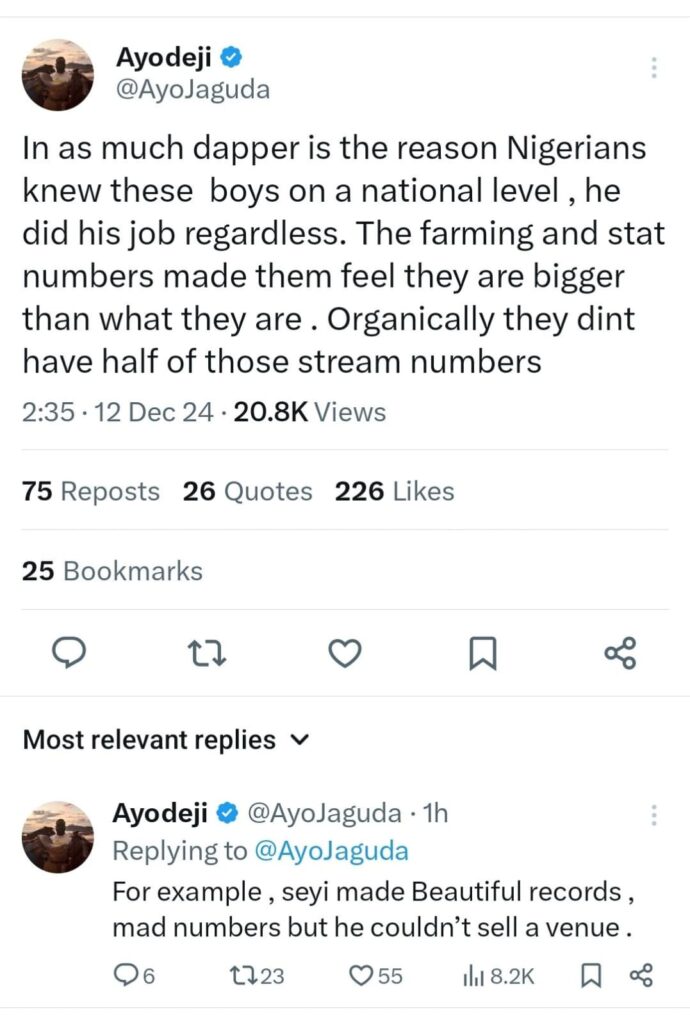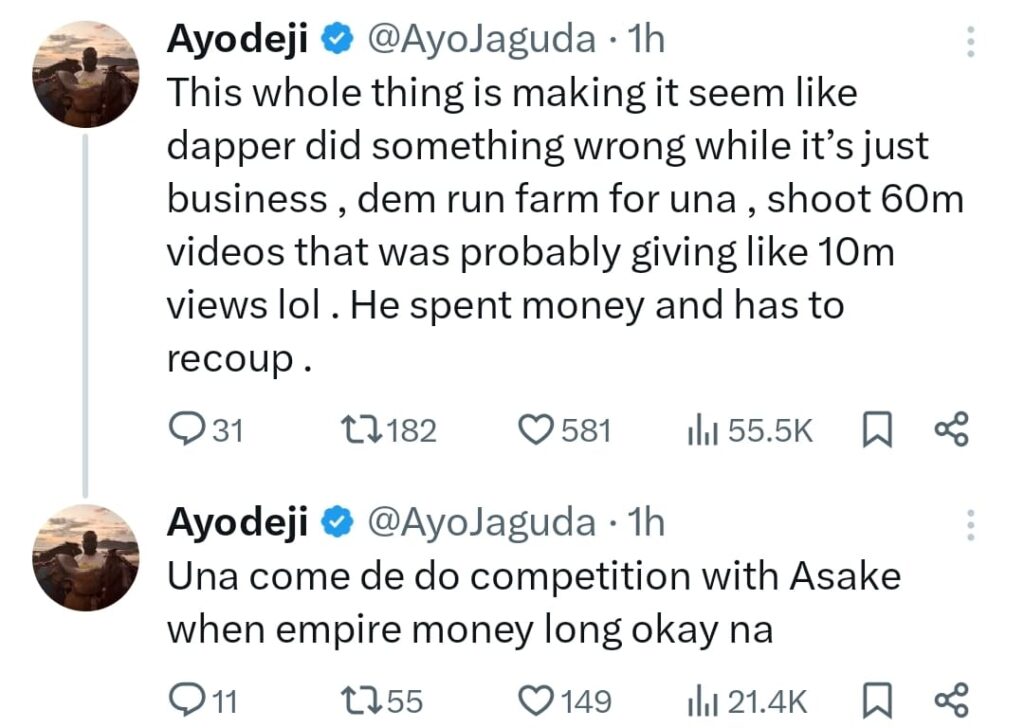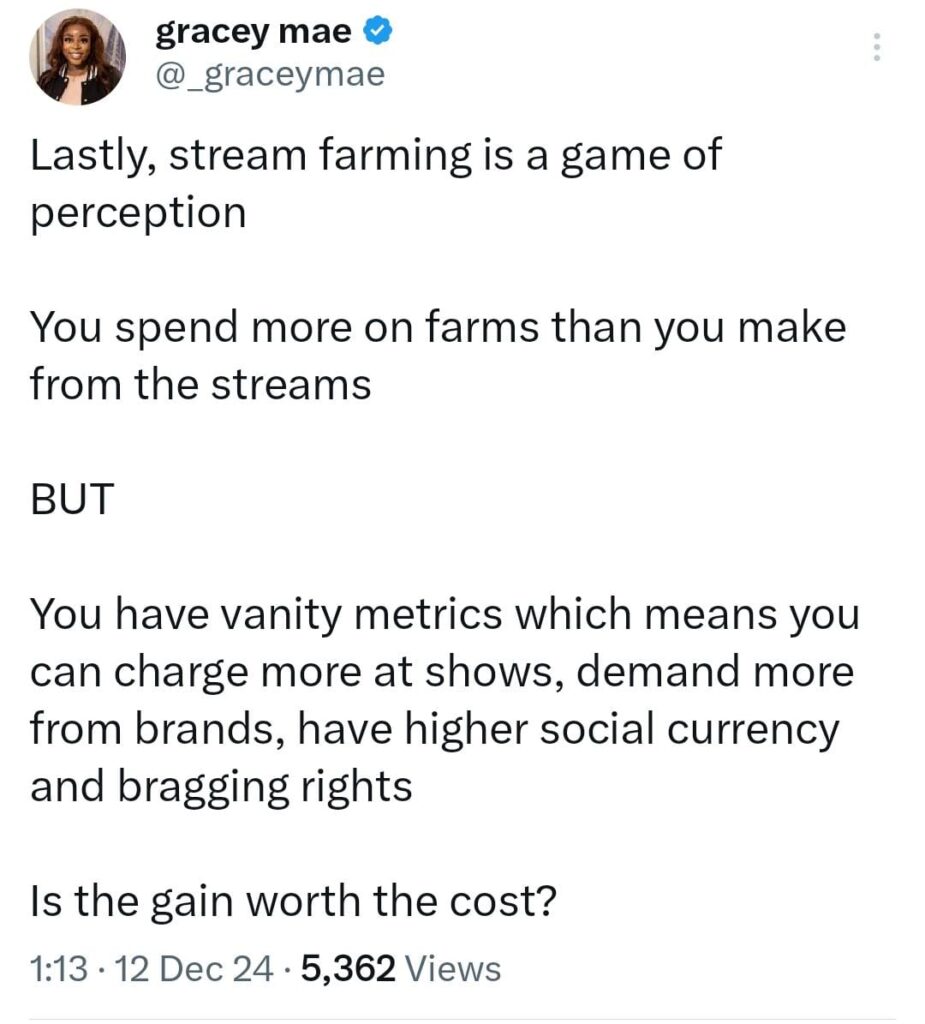In the past two years, artists like Shallipopi and Seyi Vibez have risen to the top of Nigeria and Africa’s music charts, commanding attention, awards, and sold-out shows. But behind the glitz and glamour, recent controversies reveal a troubling trend in the industry: stream farming and dissatisfaction with management. With artists like Muyeez also walking away from their contracts, the spotlight is now on the strategies labels are using and whether they serve the long-term growth of these stars or simply inflate short-term success.
What is Stream Farming and How Does it Work?
Stream farming involves artificially boosting streaming numbers by using bots, click farms, or even coordinated groups of real people who repeatedly stream an artist’s music. The goal is simple: make a song or artist appear far more popular than they really are. This practice inflates metrics on streaming platforms like Spotify, Apple Music, and Audiomack, making it seem like an artist has millions of loyal listeners.
These inflated numbers come with tangible benefits. As Gracey Mae pointed out in a recent post, “Stream farming is a game of perception. You spend more on farms than you make from the streams. But you have vanity metrics which means you can charge more at shows, demand more from brands, and have higher social currency.”
In other words, stream farming boosts an artist’s perceived popularity, helping them secure lucrative deals, awards, and higher performance fees.
The Downsides: Unsustainable Growth and Artist Frustration
However, this strategy comes at a cost. The success it projects is often not sustainable. While the numbers may soar, real fan engagement and revenue from streams can remain disappointingly low. The pressure to maintain this illusion can lead to frustration, especially when management is seen as mishandling the artist’s career.
This seems to be the case for Shallipopi, Seyi Vibez, and Muyeez. Their recent exits from their management contracts point to deeper issues:
- Financial Discontent: Despite the apparent success, artists may not be seeing enough returns. Labels that invest heavily in farming expect quick gains, but if real revenue doesn’t follow, the artist feels short-changed.
- Career Mismanagement: A lack of strategic planning, marketing missteps, or overemphasizing short-term wins can hinder an artist’s true potential.
Respected music journalist Ayodeji, known as @AyoJaguda, shared his insights on this trend:
“Organically they didn’t have half of those stream numbers… The farming and stat numbers made them feel they are bigger than what they are.”
While the numbers create the illusion of stardom, they don’t always reflect the artist’s real-world influence. Ayodeji went on to illustrate how this impacts careers:
“For example, Seyi made beautiful records, mad numbers, but he couldn’t sell a venue.”

The Labels’ Gamble: Quick Gains vs. Long-Term Growth
For music labels, stream farming is a calculated gamble. The goal is to boost an artist’s star power quickly — secure brand deals, media attention, and awards — even if it doesn’t translate into real fan loyalty. This can work temporarily, but the cracks eventually show. When artists realize their growth isn’t authentic or their earnings aren’t matching their supposed success, dissatisfaction follows.
As Ayodeji further explained:
“This whole thing is making it seem like Dapper did something wrong while it’s just business. They run farm for una, shoot 60m videos that probably give 10m views. He spent money and has to recoup.”

Is the Industry Ready for Change?
The exits of Shallipopi, Seyi Vibez, and Muyeez from their management contracts signal a need for the industry to rethink its approach. Artists are increasingly aware of the pitfalls of artificially inflated success. For long-term careers, genuine fan engagement, strategic growth, and fair management practices are essential.
The question remains: Will labels adapt to prioritize real growth, or will they continue to chase quick wins through stream farming?















